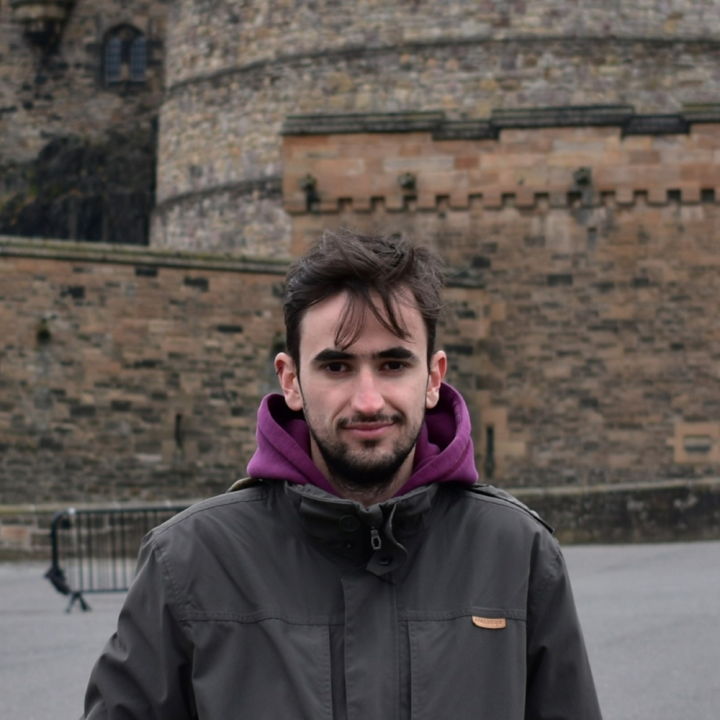Student Spotlight - Vasilis Raptis
Get to know Vasilis, an Academy student who is combining his background in biological sciences with computational and statistical genetics to research delirium.
1. Name
Vasilis Raptis

2. What is your project title and who are your supervisors?
'Dissecting the genetic risk factors of delirium and identification of therapeutic targets', supervised by: Prof. Albert Tenesa (Roslin Institute), Prof. Alasdair MacLullich (Usher Institute) and Dr. Tim Cannings (School of Mathematics).
3. What is your background?
My background is in various aspects of biological sciences. I got my BSc in biology from the Aristotle University of Thessaloniki, Greece, from 2015-2020, where I got interested on using bioinformatics approaches to tackle biological questions. More recently, I have focused on computational & statistical genetics, completing my MSc in Quantitative Genetics from the University of Edinburgh and working in human genetic research for a year before starting my PhD.
4. What drew you to the Academy?
I didn’t know of the Academy before applying, but the topic of the PhD drew my attention initially. I had had experience in genetic research beforehand, but I knew less about applying it in the context of (later life) healthcare. The Academy seemed like a good opportunity to fill this gap.
5. How did you find/how are you finding your taught year?
I found that the training year was useful in several aspects. I got training in technical aspects directly related to my project through my elective courses and the summer project (e.g. programming, statistical analyses, genomics). But I also got a more holistic understanding of the approaches and challenges in ageing research in general. Overall, I would say, that the training year helped me shape better in my head how to tackle my research project.
6. What is your PhD about and why does it matter to you?
My PhD is about understanding whether and how our genome affects our chances of suffering from delirium or not. This is an understudied area of an equally understudied medical condition that is fairly common and can cause a lot of suffering in patients. If we were able to understand better the genetic / biological basis of delirium, this could pave the way for better prevention or treatment in the long run. So, having a small contribution towards improving lives through this goal, is something that I find meaningful about my PhD.
7. What’s something that’s surprised you about your experience so far?
Something that surprised me so far was the breadth of research approaches covered in the Academy. Not everything that I learned in the training year will be applicable to my research, but interacting with people from different fields’ perspectives made me realise better the complexities of working in ageing research.
8. Any tips for those interested in a PhD?
I think it is important to have confidence in your abilities and your ideas on how to move with your project. Other people can advise you and offer guidance, but eventually it will be your research and you will be the one making decisions on how to proceed. So, I would suggest to find an environment that allows this kind of creative freedom.
9. Twitter/LinkedIn/Github/any other professional platforms you would like to share?
LinkedIn: https://www.linkedin.com/in/vasra/

